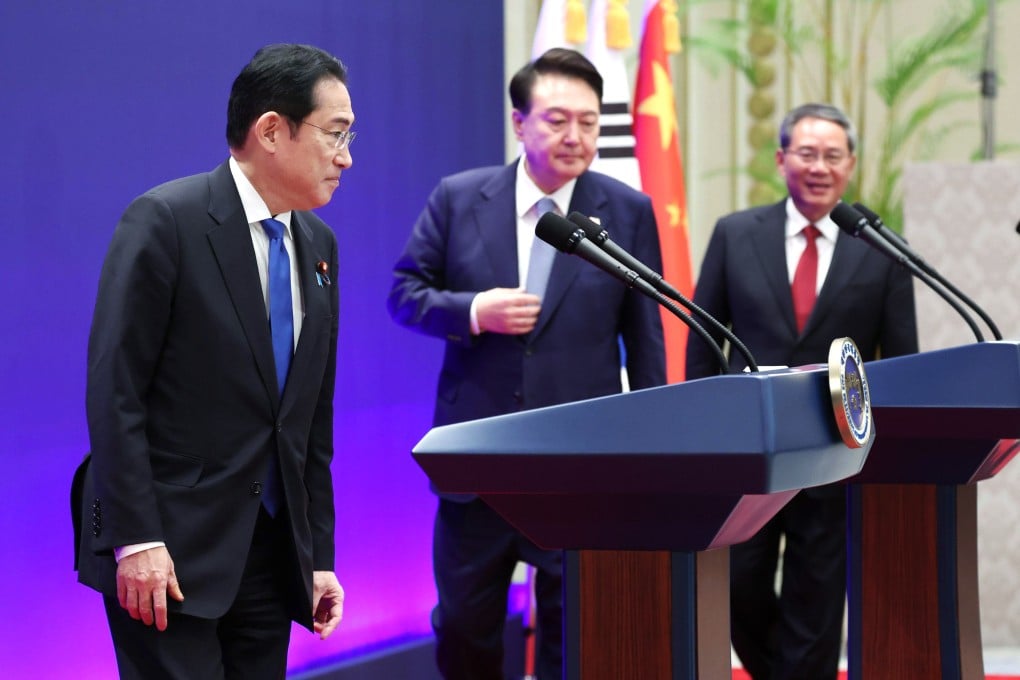Advertisement
China, Japan, South Korea vow to work together to keep supply chains stable
- Leaders also pledge to cooperate on denuclearisation of the Korean peninsula, during trilateral summit in Seoul
- Chinese Premier Li Qiang raises concern over Tokyo and Seoul joining US efforts to form bloc aimed at containing China
Reading Time:3 minutes
Why you can trust SCMP
55

China, Japan and South Korea pledged to boost cooperation to keep supply chains stable and to work together on denuclearisation of the Korean peninsula during their first trilateral summit since 2019.
South Korean President Yoon Suk-yeol, Chinese Premier Li Qiang and Japanese Prime Minister Fumio Kishida discussed issues including the economy and trade at the meeting in Seoul on Monday, as well as people-to-people exchanges, public health, and regional peace and stability.
The dialogue had been suspended for more than four years because of the Covid-19 pandemic and strained ties between the neighbours.
In a joint statement released after the meeting, the three leaders said they would “continue to work to ensure a global level playing field to foster a free, open, non-discriminatory, transparent, inclusive and predictable trade and investment environment”.
“We also reaffirm our commitment to keeping markets open, strengthening supply chain cooperation and avoiding supply chain disruptions,” the statement said, adding that there was a consensus to continue communication on export controls.
The importance of a stable supply chain had featured prominently in a meeting between Li and Yoon on Sunday. Noting that the two countries’ supply chains were “deeply intertwined”, Li told Yoon that they should oppose turning economic and trade issues into political or security ones and work together to maintain stable supply chains, according to the Chinese foreign ministry readout.
Advertisement
Select Voice
Choose your listening speed
Get through articles 2-3x faster
1.1x
220 WPM
Slow
Normal
Fast
1.1x